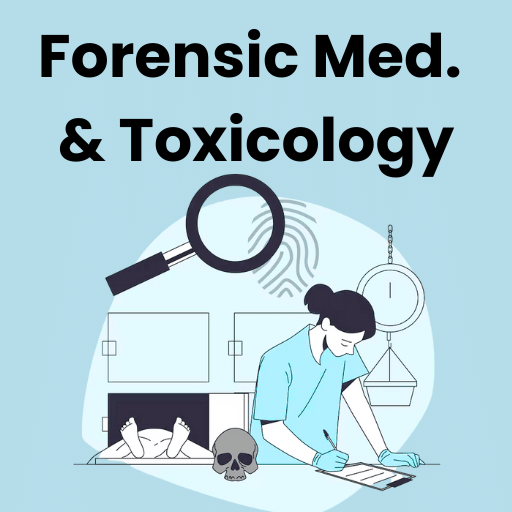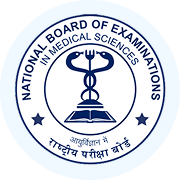
|
INFINITY COURSE
Fecal Microbiota Transplantation (FMT) for NEET PG296 students learning this week · Last updated on Oct 01, 2025 |
Fecal Microbiota Transplantation (FMT) Study Material
Trending Courses for NEET PG
Forensic Medicine and Toxicology (FMT) for NEET PG Exam Pattern 2025-2026
Forensic Medicine and Toxicology (FMT) Exam Pattern for NEET PG
The Forensic Medicine and Toxicology (FMT) section of the NEET PG exam is crucial for aspirants looking to pursue postgraduate studies in medical fields. Understanding the exam pattern is essential for effective preparation. Below are the key components of the FMT section of the NEET PG exam:
1. Exam Structure
- Type of Questions: The NEET PG exam consists of multiple-choice questions (MCQs).
- Total Questions: The entire exam typically includes 200 questions, with a specific number allotted to FMT.
- Distribution of Marks: Each question carries equal marks, and there is negative marking for incorrect answers.
2. Subject Weightage
- Forensic Medicine: Covers topics such as autopsy, legal aspects of medicine, and forensic pathology.
- Toxicology: Focuses on the effects of poisons, drug interactions, and methods of toxicological analysis.
3. Marking Scheme
- Correct Answer: +4 marks for each correct answer.
- Incorrect Answer: -1 mark for each incorrect answer.
- Unattempted Questions: 0 marks for questions left unanswered.
4. Duration of Exam
The total duration of the NEET PG exam is 3 hours and 30 minutes, during which candidates must manage their time effectively to cover all questions.
5. Preparation Tips
- Understand Key Concepts: Focus on fundamental principles and applications of forensic medicine and toxicology.
- Practice MCQs: Regular practice of MCQs to familiarize yourself with the exam format and question types.
- Review Previous Year Papers: Analyze past papers to identify trends in question patterns and frequently asked topics.
6. Resources for Study
Utilize recommended textbooks, online resources, and coaching materials specifically tailored for the FMT section of the NEET PG exam.
By understanding the exam pattern and preparing accordingly, candidates can enhance their chances of success in the Forensic Medicine and Toxicology section of the NEET PG exam.
Forensic Medicine and Toxicology (FMT) Syllabus 2025-2026 PDF Download
NEET PG Forensic Medicine and Toxicology (FMT) Syllabus
The NEET PG Forensic Medicine and Toxicology (FMT) syllabus is crucial for candidates aspiring to pursue postgraduate studies in the medical field. This syllabus encompasses various aspects of forensic medicine, toxicology, and their legal implications. Below is a detailed breakdown of the syllabus components.
NEET PG Introduction and Evolution
- Overview of NEET PG examination structure.
- Historical context and evolution of forensic medicine and toxicology in India.
- Importance of NEET PG in shaping the future of medical professionals.
- Current trends and future directions in forensic medicine and toxicology.
NEET PG Medical Jurisprudence
- Definition and scope of medical jurisprudence.
- Legal aspects of medical practice.
- Rights and responsibilities of medical professionals.
- Consent, confidentiality, and medico-legal documentation.
- Role of medical experts in court, including witness testimony.
NEET PG Forensic Pathology
- Principles of forensic pathology and its significance.
- Post-mortem examination procedures and protocols.
- Identification of cause and manner of death.
- Forensic autopsy techniques and findings.
- Role of forensic pathologists in criminal investigations.
NEET PG Clinical Forensic Medicine
- Application of clinical skills in forensic settings.
- Assessment of injuries and their medico-legal implications.
- Evaluation of sexual offenses and related forensic examinations.
- Documentation and reporting of clinical findings in a legal context.
- Handling of evidence and chain of custody in clinical forensic cases.
NEET PG Forensic Toxicology
- Fundamentals of toxicology relevant to forensic medicine.
- Types of poisons and their effects on the human body.
- Methods of toxicological analysis and their applications.
- Role of toxicologists in investigations of poisoning cases.
- Legal considerations in toxicological cases, including expert testimony.
Conclusion
The NEET PG Forensic Medicine and Toxicology (FMT) syllabus equips students with essential knowledge and skills required for a career in forensic medicine. Understanding the intricate relationship between medicine and law is vital for medical professionals aiming to excel in this field. Candidates are encouraged to study each component thoroughly to achieve success in the NEET PG examination.
This course is helpful for the following exams: NEET PG
How to Prepare Forensic Medicine and Toxicology (FMT) for NEET PG?
How to Prepare Forensic Medicine and Toxicology (FMT) for NEET PG?
Preparing for Forensic Medicine and Toxicology (FMT) for NEET PG can be a daunting task, but with the right strategies and resources, you can master this crucial subject. Here are some effective tips to enhance your preparation:
1. Understand the Syllabus
Familiarize yourself with the NEET PG syllabus for Forensic Medicine and Toxicology (FMT). This will help you identify the important topics and allocate your study time effectively.
2. Use Standard Textbooks
Refer to standard textbooks on Forensic Medicine and Toxicology (FMT) such as "Forensic Medicine: A Guide for Medical Practitioners" and "Toxicology: The Basic Science of Poisons." These resources provide comprehensive coverage of the subject.
3. Take Notes
While studying Forensic Medicine and Toxicology (FMT), make concise notes. Highlight key points, definitions, and important case studies. This will help you revise quickly before the exam.
4. Practice Previous Year Questions
Solving previous year NEET PG questions related to Forensic Medicine and Toxicology (FMT) will give you a clear idea of the exam pattern and frequently asked questions.
5. Join a Study Group
Collaborating with peers who are also preparing for Forensic Medicine and Toxicology (FMT) can enhance your understanding of complex topics. Discussing and explaining concepts to others reinforces your knowledge.
6. Use Online Resources
Leverage online resources tailored for Forensic Medicine and Toxicology (FMT) preparation. EduRev offers a plethora of materials, including video lectures, notes, and quizzes that can be extremely beneficial.
7. Focus on Practical Applications
Understanding the practical applications of Forensic Medicine and Toxicology (FMT) in real-life scenarios can deepen your grasp of the subject. Engage in case studies and forensic reports to see how theory applies in practice.
8. Revise Regularly
Regular revision is key to retaining information. Set aside time each week to review the topics you’ve covered in Forensic Medicine and Toxicology (FMT) to reinforce your memory.
9. Mock Tests
Participating in mock tests specifically designed for NEET PG can help you assess your preparation level in Forensic Medicine and Toxicology (FMT). Analyze your performance and work on weak areas.
10. Stay Updated
Stay informed about current developments in the field of Forensic Medicine and Toxicology (FMT). Reading journals, articles, and attending webinars can provide insights into the latest research and trends.
Conclusion
Preparing for Forensic Medicine and Toxicology (FMT) for NEET PG requires a structured approach and dedication. By following these strategies and utilizing resources like EduRev, you can enhance your understanding and performance in this vital subject.
Importance of Forensic Medicine and Toxicology (FMT) for NEET PG
Importance of Forensic Medicine and Toxicology (FMT) Course for NEET PG
Forensic Medicine and Toxicology (FMT) is a crucial component of the medical curriculum, particularly for those preparing for the NEET PG (National Eligibility cum Entrance Test for Postgraduate). The significance of this course extends beyond mere academic knowledge; it equips aspiring medical professionals with essential skills and insights that are vital in various medical and legal contexts. Here’s why the FMT course is indispensable for NEET PG aspirants:
1. Understanding Legal Frameworks
- Forensic Medicine bridges the gap between medicine and law, enabling students to comprehend the legal implications of medical practice.
- Knowledge of legal responsibilities and ethical considerations is essential for any medical practitioner.
2. Clinical Application in Real-World Scenarios
- The FMT course provides practical knowledge that can be applied in emergency and clinical settings.
- Students learn how to assess and manage cases involving trauma, poisoning, and other forensic scenarios.
3. Enhancing Diagnostic Skills
- Mastery in forensic toxicology allows for accurate identification of substances causing harm to patients.
- It enhances the ability to perform differential diagnoses in cases of overdose and poisoning.
4. Interdisciplinary Knowledge
- FMT integrates various fields such as pharmacology, pathology, and toxicology, fostering a well-rounded medical education.
- This interdisciplinary approach prepares students for collaborative work in diverse medical environments.
5. Career Opportunities
- Proficiency in forensic medicine opens doors to multiple career paths, including forensic pathology, toxicology, and law enforcement agencies.
- Specialists in this field are in high demand, making it a lucrative avenue for medical graduates.
6. Contribution to Public Health
- Understanding toxic agents and their effects enables medical professionals to contribute to public health initiatives and safety regulations.
- Knowledge gained from the FMT course can lead to advancements in preventing substance abuse and improving community health.
7. Preparation for Competitive Exams
- FMT is a significant component in various competitive examinations, including NEET PG, enhancing students’ chances of success.
- A solid grasp of forensic and toxicological principles is often tested, making this course invaluable for exam preparation.
Conclusion
The Forensic Medicine and Toxicology (FMT) course is not just an academic requirement; it is a fundamental aspect of a comprehensive medical education. By equipping NEET PG aspirants with critical knowledge and skills, this course prepares them for the multifaceted challenges they will face in their medical careers. Investing time and effort into mastering FMT can significantly enhance a student’s competence and confidence in the medical field.
Forensic Medicine and Toxicology (FMT) for NEET PG FAQs
| 1. What is Forensic Medicine and Toxicology? |  |
| 2. What are the key components of Forensic Medicine? |  |
| 3. How is Toxicology defined in the context of Forensic Medicine? |  |
| 4. What is the role of a forensic pathologist? |  |
| 5. What types of samples are commonly analyzed in forensic toxicology? |  |
| 6. What is the importance of chain of custody in forensic evidence? |  |
| 7. How can forensic toxicology assist in drug-related cases? |  |
| 8. What are some common methods used in forensic toxicology analysis? |  |
| 9. What is the significance of post-mortem toxicology? |  |
| 10. How do forensic toxicologists determine the cause of death? |  |
| 11. What are the legal implications of forensic evidence? |  |
| 12. What role does forensic medicine play in sexual assault investigations? |  |
| 13. How can forensic experts communicate their findings in court? |  |
| 14. What are some challenges faced in forensic toxicology? |  |
| 15. What ethical considerations exist in forensic medicine and toxicology? |  |
Best Coaching for Forensic Medicine and Toxicology (FMT) for NEET PG
Tags related with Forensic Medicine and Toxicology (FMT) for NEET PG

|
View your Course Analysis |

|

|
Create your own Test |

|
































